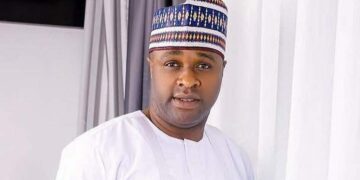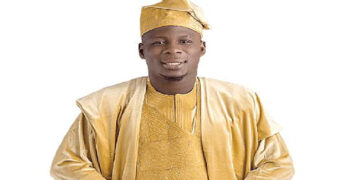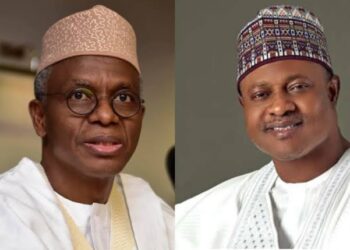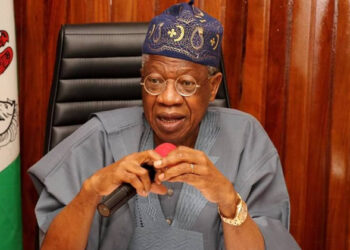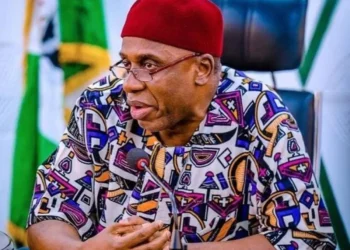
President Bola Tinubu’s assurances of a swift return to peace in Rivers State appear increasingly out of reach, as recent confessions and counter-allegations have thrown the state deeper into political turmoil. ANN GODWIN reports on a conflict now driven by a mix of personal vendettas, power struggles, and rising public tension.
Fresh Allegations, Deeper Divides
The latest twist in the Rivers State crisis stems from shocking allegations made by Dr. George Nwaeke, former Head of Service (HoS), just days after resigning from office. Nwaeke, who served under both former Governor Nyesom Wike and suspended Governor Siminalayi Fubara, has accused Fubara of masterminding the bombing of the State House of Assembly Complex, pipeline explosions, and even plotting to unseat President Tinubu.
Nwaeke’s revelations, delivered during a press briefing at Transcorp Hilton, Abuja, were mired in controversy, especially after his wife, Florence Nwaeke, claimed he made the statements under duress. She further alleged that he was being used by political actors to fabricate a narrative.
But Nwaeke quickly released another video contradicting his wife, claiming he was safe and that his wife had been “penetrated with false information” by the Fubara camp.
A Plot to Prolong Emergency Rule?
Observers say these contradictory statements and internal family drama are signs of deeper problems. Some political watchers believe there is a calculated plot by anti-Fubara forces to prolong the emergency administration under Retired Vice Admiral Ibok-Ete Ibas—the current Sole Administrator of Rivers State.
Nwaeke’s accusations may be laying the groundwork for the arrest and prosecution of Fubara’s allies, despite the suspended governor’s constitutional immunity. His Chief of Staff, Edison Ehie, has also been named in connection with the alleged Assembly bombing and financial misconduct.
Calls for Justice and Concerns of Bias
Several key voices are raising alarms over the Sole Administrator’s actions. Legal practitioner, Somari Joseph Ogolo, decried what he described as a drift toward anarchy. He also questioned the mysterious case of a “missing N15 billion,” which allegedly involved the former HoS.
“There are too many constitutional breaches happening under President Tinubu’s watch. The administrator seems more interested in dismantling Fubara’s structure than fostering peace,” Ogolo stated.
Pauline Green, a woman leader in Port Harcourt, also expressed concern over the state’s deteriorating condition.
“This is no longer about Wike and Fubara. Outsiders are exploiting the chaos to drain the state’s resources,” she warned.
Fallout of Sole Administrator’s Actions
Since taking over, Ibas has dismissed all political appointees under Fubara in what many describe as a “gestapo-style purge.” His administration has reportedly affected over 40% of workers, causing economic and institutional instability.
Ogbonna Nwuke, a political analyst and former Rivers State Commissioner for Information, criticised Ibas’ partisanship:
“Ibas was sent to stabilize the state, not to tear down democratic structures. His actions are fueling tension, not calming it.”
Nwuke called on President Tinubu to reinstate Fubara, his deputy, and the suspended lawmakers, arguing that the emergency rule was based on misleading reports.
APC Defends the Sole Administrator
On the other side of the divide, the All Progressives Congress (APC) in Rivers State has come out in full support of Ibas’ decisions.
Tony Okocha, APC State Chairman, insists that Fubara and his loyalists must face justice over the alleged Assembly bombing and financial mismanagement.
“The Sole Administrator is doing what is necessary to restore order,” said Chibuike Ikenga, the party’s Publicity Secretary.
“Since the suspended governor appointed those officials, their dismissal is only logical.”
The APC maintains that the emergency declaration was prompted by real threats to oil infrastructure and public safety.
What’s Next for Rivers?
As the political battle intensifies, concerns are growing that Rivers State is becoming a theatre of power games while ordinary citizens suffer. The current trajectory suggests that unless a meaningful federal intervention or political reconciliation occurs, the emergency rule may outlive its intended duration.
Observers say the crisis is no longer just about governance—it’s a battle for control, legacy, and political dominance in one of Nigeria’s richest states.




